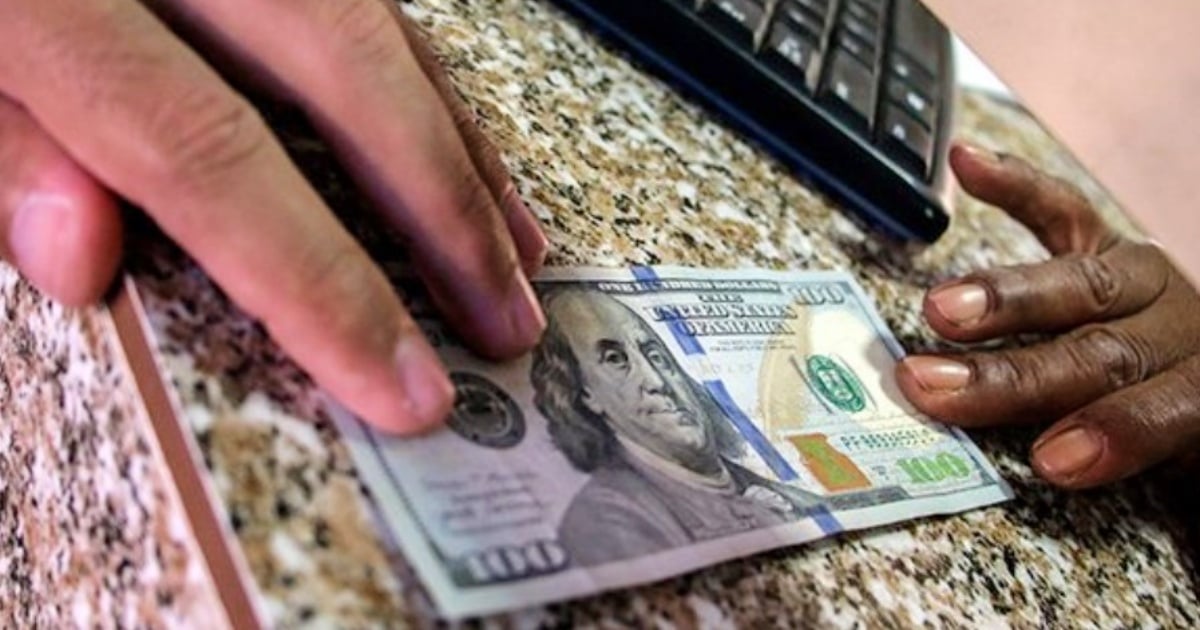Starting January 1, 2026, a newly approved federal tax by the U.S. Senate will significantly alter how money is sent abroad, particularly affecting millions of immigrants residing in Florida. This 1% levy on cash remittances, bank drafts, or cashier's checks is poised to directly impact a community that makes up over 22% of the state's population. The tax is part of the ambitious Republican legislative package known as the One Big Beautiful Bill, narrowly passed in the Senate on Tuesday. However, it must return to the House of Representatives for further consideration. Cuban immigrants, among others, would be affected, with only U.S. citizens and nationals exempt from this tax.
Understanding the New Remittance Tax
The legislation enacts a federal tax of 1% on remittances sent exclusively in cash, via bank drafts, or cashier's checks. Exemptions from this tax include transfers made through:
- Bank accounts
- U.S.-issued debit or credit cards
- Financial institutions like banks, credit unions, and domestic brokerage houses
This means the tax's effect is contingent on the sender's chosen method. Utilizing electronic or banking channels will avoid this fee, whereas cash transfers will incur additional charges, compounding those already levied by services like Western Union or MoneyGram.
Who Bears the Cost and How It Will Be Collected
The tax is not directly paid by the sender but is collected by the remittance service provider—such as currency exchange offices or money transfer agencies—and forwarded to the Treasury Department quarterly. If the provider fails to collect the tax during the transaction, the responsibility falls on them, not the user. Additionally, providers must have agreements with the Treasury Department to verify the sender's status. In theory, U.S. citizens and nationals using qualified providers will be exempt, but there remains uncertainty about how this verification will be implemented in practice.
Who Will Be Most Affected?
According to an FDIC study, around 42% of Latino immigrants in the United States regularly send remittances, emphasizing the measure's significance for communities like those in Florida. Although there's no state-specific data, a substantial portion of remittances is still conducted in cash, due to a lack of awareness of digital tools, banking inaccessibility, or distrust of financial institutions. This scenario leaves lower-income immigrants, particularly those without bank accounts or regular documentation, in a vulnerable position.
Florida: A Key Hub for Migration and Remittances
Florida is home to nearly five million immigrants, with Cuban, Colombian, and Mexican communities leading the numbers. These groups, historically connected to their countries of origin, maintain strong economic ties through remittances, a vital mechanism for millions of families in Latin America and the Caribbean. According to the American Community Survey (ACS) by the Census Bureau, in 2023, foreign-born residents in Florida accounted for 22.1% of the state's total population. Key remittance-receiving countries from Florida include Cuba (21.2% of the immigrant population), Colombia (6.7%), and Mexico (5.1%). These deeply rooted communities are major fund senders to the southern continent.
An Evolving Tax Rate
Although the Senate approved a 1% tax rate, this figure has been a point of negotiation. The House of Representatives initially proposed a 5% tax, later reducing it to 3.5%, with the Senate finally setting it at 1%. The bill must return to the House, where further amendments could occur before President Donald Trump signs it. Therefore, the final tax rate and exemptions remain uncertain.
International Reactions: Mexico's Response
One notable reaction comes from Mexico. President Claudia Sheinbaum has announced that her government will reimburse the 1% tax to Mexican migrants, provided they use the Financiera del Bienestar (FINABIEN) as the remittance channel. This approach aims to mitigate the economic impact of the new tax while channeling remittances through official and secure means. Sheinbaum also hailed the tax reduction from earlier versions, crediting this achievement to migrant pressure and the diplomatic efforts of Mexican legislators.
The Role of Remittances in Latin American Economies
Remittances are a critical source of income for many economies in the Global South. In 2024, remittances to Latin America and the Caribbean hit a record $161 billion, with a 5% annual growth, according to the Inter-American Development Bank (IDB). In this context, any obstacle, no matter how small—like a 1% tax—can have multiplying effects on entire communities dependent on money sent from the United States. An indirect consequence of this measure could be an increase in remittance digitalization. As electronic transfers are tax-exempt, they become the most attractive and economical option. This could push millions of immigrants to open bank accounts, use apps like Wise, PayPal, or Zelle, or register with mobile money transfer platforms. However, this shift might exclude older individuals, those with limited digital literacy, or those lacking documentation, who will continue to rely on cash.
Frequently Asked Questions about the Cash Remittance Tax
How will the new remittance tax affect immigrants in Florida?
The tax will impose an additional cost on cash remittances, potentially impacting immigrant communities that rely on these funds. Those who use electronic or banking methods will avoid the tax.
What methods are exempt from the 1% remittance tax?
Transfers made through bank accounts, U.S.-issued debit or credit cards, and certain financial institutions are exempt from the tax.
Who is responsible for paying the remittance tax?
The tax is collected by remittance service providers and forwarded to the Treasury Department, not directly paid by the sender.
How might the remittance tax encourage digitalization?
Since electronic transfers are tax-exempt, they may become more appealing, prompting immigrants to adopt digital methods for sending money.
